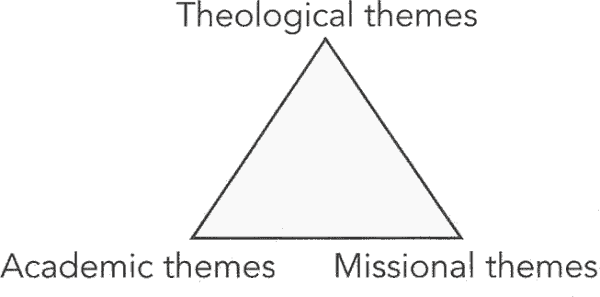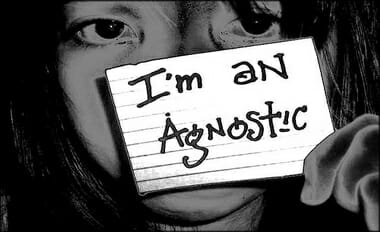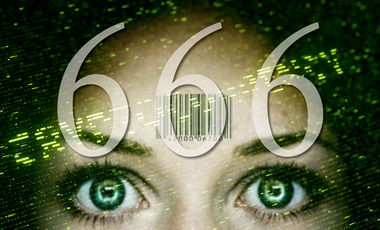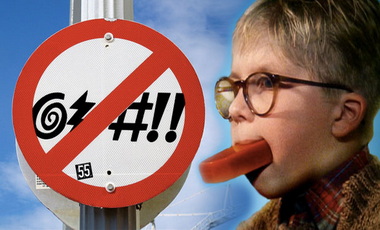A truncated version of this in on BILLBOARD CHRIS’ X. The full video (7hrs) is HERE.
Author: Papa Giorgio


A Strategy For Teaching Apologetics To Youth | Mike Winger
A simple strategy that anyone can do to help prepare the church to face skeptical challenges and be ready to outreach to an unbelieving world. I’ve found these strategies to be effective. Integrating apologetics into normal church services is easy. Here is how to do it and some resources that will help!
Disclaimer: the following links are affiliate links. If you purchase materials through these links a small portion of that purchase will go toward helping me financially. It won’t cost you anything extra and it will help me keep making content online. It’s a win/win!
- Archaeology Study Bible (easy to incorporate into vs by vs messages)
- The Big Book of Bible Difficulties (this is the newly updated “When Critics Ask”)
- When Skeptics Ask
- Evidence That Demands a Verdict
Some of my recommended books are here as well:
RPT’s Apologetics 101
This will be a very basic introduction to why many — like myself — believe apologetics to be very important in the believers life. A “WHY APOLOGETICS 101,” so-to-speak.
What is the word “apologetic” even mean? How do we defining the word, Biblically. Apologetics is explaining to the non-believing friends, co-workers, family, the soundness of the Christian collection of beliefs about life and the universe in easy to express ways that allows co-operation of our created will and intellect with the Holy Spirit in evangelizing those around us. We are not robots under God’s divine hand (automatons) but individuals whom God works through keeping our personality intact in sharing the Gospel effectively and showing how Christianity stands in stark contrast to competing beliefs around us. The non-believer is not expected to interpret the data of history, psychology, and morality (let alone theology and miracles), as does the Christian. However, he must be given such data as the Christian interprets it… Otherwise he is not being witnessed to by a Christian.
✞ 1 Peter 3:15 – “… and always be ready to give a defense [or answer in some translations] to anyone who asks you for a reason for the hope that is in you.” Defense/Answer: is the Greek apologia, from which we get our word “apologetics,” meaning the careful, logical defense of the Christian faith showing its validity as the true saving gospel of God, our Creator and Savior. In effect Peter is admonishing believers to be always prepared to give an apologetic for the faith, especially when confronted by those who deny it and would destroy it if they could.
✞ Jude 3 – “although I was very eager to write to you about the salvation we share, I felt I had to write and urge you to contend for the faith that was once for all entrusted to the saints.” Contend: Should be “earnestly contend.” The Greek, epagonizomai, refers to athletes intensely agonizing in the grueling training for a coming contest. Thus Jude graphically stresses the urgency of defending the faith. The defense of the gospel is no indifferent matter to be left to a few specialists, but one to which all believers should be trained and committed.
✞ Philippians 1:7 – “…whether I am in chains or defending and confirming the gospel, all of you share in God’s grace with me.” Defending: A legal term referring to a formal defense as in a courtroom. Many modern evangelicals think the gospel does not need to be defended — just preached. Paul and Timothy are saying different here.
For instance, apologetics should stir ones knowledge base about their own faith and understanding towards positions Christianity naturally takes. Or, what are known as “truth statements,” i.e., “Jesus rose from the grave,” “God exists,” “God changed my life,” “Jesus is not like the Buddha,” “God is creator,” and the like. People often times will stop you at one of those points and ask you to elucidate. You should be prepared to.
“I suspect that most of the individuals who have religious faith are content with blind faith. They feel no obligation to understand what they believe. They may even wish not to have their beliefs disturbed by thought. But if God in whom they believe created them with intellectual and rational powers that impose upon them the duty to try to understand the creed of their religion. Not to do so is to verge on superstition”
Morimer J. Adler, “A Philosopher’s Religious Faith,” in, Kelly James Clark, ed., Philosophers Who Believe: The Spiritual Journeys of 11 Leading Thinkers (Downers Grove, IL: InterVarsity Press, 1993), 207.
Apologetics is one of the steps one takes (should take) in advancing their faith past milk by increases one’s “awareness” about the world in which they live and parts of it we should separate ourselves from. This includes as well aberrant thinking in our own camp.
“Instead of thinking of Christianity as a collection of theological bits and pieces to be believed or debated, we should approach our faith as a conceptual system, as a total world-and-life view…. Raising one’s self-consciousness [awareness] about worldviews is an essential part of intellectual maturity”
Ronald H. Nash, Worldviews in Conflict: Choosing Christianity in a World of Ideas [Grand Rapids, MI: Zondervan, 1992], 19, 9.
1) Apologetics helps with correct belief (truth) and in this regard is very important:
Believers may not fully comprehend or may have genuine misunderstandings or even limited exposure to and about Christian truth, but there are doctrinal parameters outside of which a person cannot cross without suffering apostasy and divine judgment. Embracing a false Christ and/or a false’ gospel leads to dire consequences. Paul’s warning to the Galatia church concerning a different gospel dramatically underscores the importance of sound (biblical) doctrine: “But even if we or an angel from heaven should preach a gospel other than the one we preached to you, let him be eternally condemned! (Galatians 1:8)
2) Christianity as a truth position, a worldview, necessitates an apologetic response:
Christian apologists must take the religions of the world seriously. The effective apologist will come to know other religions and their adherents with an insider’s mastery. Only then can he or she graciously expose a given religion’s flaws in light of essential Christian truth. Not an easy task for the apologist for sure, however, a well-done expose can have a powerful effect. This endeavor seems to be what Scripture calls for in terms of the apologetics enterprise. “We demolish arguments and every pretension that sets itself up against the knowledge of God, and we take captive every thought to make it obedient to Christ” (2 Corinthians 10:5).
3) Apologetics offers People, deservedly, the proper respect:
As creatures of God, all people bear the imago Dei and therefore have inherent dignity and moral worth. Every person consequently deserves respectful treatment regardless of race, sex, social class, political, or religious belief. Christians are called by God to guard the individual right of others to believe what they choose, whether their particular beliefs are wrong, absurd, or contrary to Christian truth. This regard basically amounts to respecting human personhood, volition, and individual moral responsibility. Christians should even tolerate the practices (religious and otherwise) of others, so long as those practices are legal, moral, and prudential. However, respecting another person’s beliefs must not be misconstrued as approving those beliefs. Christians are responsible to use their powers of persuasion to convince others of truth, especially the ultimate truth of, Jesus Christ. While being socially tolerant, Christians must at the same time be intellectually intolerant of conflicting truth claims.
(#s 1-3 are from: Kenneth Richard Samples, Without a Doubt: Answering the 20 Toughest Faith Questions [Grand Rapids, MI: Baker Books, 2004], 178-180)
Ravi Zacharias tells a story that is worth repeating, it is called “The Bell Tower”:
There’s a story of a man who used to go to work at a factory and every day would stop outside a clockmaker’s store to synchronize his watch with the clock outside. Seeing this routine, the clockmaker finally asked the gentleman, “Excuse me, sir, I see that every day you stop and adjust your watch with my clock. What kind of work do you do?” The man replied, “I’m embarrassed to tell you this, but, I keep the time at the factory nearby, and I have to ring the bell at four o clock every afternoon when it is time for the people to go home. My watch doesn’t work very well, so I synchronize it with your clock.” The clockmaker sheepishly responded, “I’ve got bad news for you. My clock doesn’t work very well either, so I synchronize it with the bell that I hear from the factory at 4:00 every afternoon.” …. Even a clock that doesn’t work may show you the right time twice a day…but it’s not because it’s keeping time.
Adapted from Ravi Zacharias, “Address to the United Nations’ Prayer Breakfast.”
Apologetics is analogous to wearing a pair of glasses:
The right eyeglasses can put the world into clearer focus, and the correct worldview can function in much the same way. When someone looks at the world from the perspective of the wrong worldview, the world won’t make much sense to him. Or what he thinks makes sense will, in fact, be wrong in important respects. Putting on the right conceptual scheme, that is, viewing the world through the correct worldview, can have important repercussions for the rest of the person’s understanding of events and ideas.
Ronald H. Nash, Worldviews in Conflict: Choosing Christianity in a World of Ideas (Grand Rapids, MI: Zondervan, 1992), 17-18.
Below is a wonderful graphic of what the person seeking to use and learn apologetics properly should look like. It is from the first chapter in a book I am currently reading and it has helped me to understand the delineations (or sub categories) to a healthy, well-balanced study of apologetics. Gregory Ganssle, in the before-mentioned book (Come Let us Reason: New Essays in Christian Apologetics, by-the-by, this is not a good introductory book on apologetics… it is a bit technical), points out the areas of study one might find him or herself in the “theological theme” (tt) of the pyramid:
… This angle [tt] includes a variety of topics, such as the scope of common grace, the nature of general revelation, and the effects of our sinful condition on our reasoning.
Exploring these topics theologically helps us develop a realistic understanding of what we ought to expect in our encounters with those who are not yet believers. Theological themes, then, are relevant to our thinking well about apologetics.

As one enters into studies on topics like these, red flags may appear in your reading general books by Christian authors. Does this mean you shouldn’t read these books or get information from such people. Not necessarily. It really depends how far they twist major doctrines of the Gospel [Bible]. For instance, would I tell a person (like my wife for instance) not to read Beth Moore? Of course not. I would however, as the spiritual leader of my household, explain some of my “red-flags” I encountered in reading her stuff and mention that an author highly recommended by her is a person I WOULD NOT read. (That being said, as I learn more about what is aberrant, I find my reading of these books has increased for my own personal apologetic studies, not as books that I incorporate into my walk.)
BONUS:
I love the opening portion about rigorous training and higher education and Sunday school. So important!
In this episode, Eli takes some time to talk about apologetics at the introductory level and speaks a little about how to teach it. He covers both apologetics and the apologetic value of theology.
I hope this short introduction to apologetics was and is helpful. There are three books I highly recommend as great starter points to both understanding the importance of apologetics as well as seeing the differing models of thinking in the world compared. These three resources are technical enough to invigorate the thinker as well as great introductions to the subject accessible to the layman.

Joe Rogan Says Doctors Will Get Sued Over “Affirming Care”
For the first time in history, the medical industry has allowed people to self-diagnose themselves when it comes to gender dysphoria. And doctors must “affirm” this diagnosis. That goes for people of all ages, including children.
All that is bad enough. However, the worst part about that is not only is this model being used on children, but many doctors have allowed minors to make life-altering decisions under the guise of “affirming” that self-diagnosis.
Coincidentally, it just turns out that all that is “big business.”
Joe Rogan told Aaron Rodgers what we are all thinking. It’s that “gender-affirming care” may result in a load of lawsuits coming from children whose self-diagnosis was “affirmed” and the “doctors” encouraged them to make these life-altering decisions……
🚩 Joe Rogan & Aaron Rodgers on the Big Business Behind ‘Gender Affirming Care’
“It’s a business. My friend who’s a doctor told me that his friend, who is a plastic surgeon who moved into gender transition care,…gets $70,000 every time he does this. And he goes, ‘This guy is… pic.twitter.com/lhrHggzZVh
— Chief Nerd (@TheChiefNerd) February 7, 2024
Here is a part of the NYT’s article, I will emphasize the part that stood out to me followed by a video that affirms why people should speak up, in love::
Grace Powell was 12 or 13 when she discovered she could be a boy.
Growing up in a relatively conservative community in Grand Rapids, Mich., Powell, like many teenagers, didn’t feel comfortable in her own skin. She was unpopular and frequently bullied. Puberty made everything worse. She suffered from depression and was in and out of therapy.
“I felt so detached from my body, and the way it was developing felt hostile to me,” Powell told me. It was classic gender dysphoria, a feeling of discomfort with your sex.
Reading about transgender people online, Powell believed that the reason she didn’t feel comfortable in her body was that she was in the wrong body. Transitioning seemed like the obvious solution. The narrative she had heard and absorbed was that if you don’t transition, you’ll kill yourself.
At 17, desperate to begin hormone therapy, Powell broke the news to her parents. They sent her to a gender specialist to make sure she was serious. In the fall of her senior year of high school, she started cross-sex hormones. She had a double mastectomy the summer before college, then went off as a transgender man named Grayson to Sarah Lawrence College, where she was paired with a male roommate on a men’s floor. At 5-foot-3, she felt she came across as a very effeminate gay man.
At no point during her medical or surgical transition, Powell says, did anyone ask her about the reasons behind her gender dysphoria or her depression. At no point was she asked about her sexual orientation. And at no point was she asked about any previous trauma, and so neither the therapists nor the doctors ever learned that she’d been sexually abused as a child.
“I wish there had been more open conversations,” Powell, now 23 and detransitioned, told me. “But I was told there is one cure and one thing to do if this is your problem, and this will help you.”….
About a 55-seconds into the video this is said:
Everybody I told I was getting a sex change and blah blah blah. They all said ohh if that’s what – If that’s what you think is right, then go ahead and do it. You know, if you if – you if you feel good and feel good about it, you know if that’s what you want. Go go do it and.
How can that happen… when you’re supposed to be accountable for your brothers and sisters and help them out? According to what I read?
And they didn’t do it. They did not do it. And to this day, they thought I was going to be a disgrace to them. That’s why they didn’t do anything. They just told me that there’s the door said OK, you know.

Kory Yeshua Points Out the Democrat’s New Boogeyman
Kory Yeshua comments on the recent Kente-cloth abusing democrat, Richard “Rachel” Levine’s, “ode [pandering] to black history month,” this time there’s a new boogeyman! Kory’s Twitter/X is HERE.
- Levine stood in front of a black, green, orange and red backdrop, the colors of which were reflected in the graphics, to explain why black history month and climate change alarmism go hand in hand. (POST-MIL)
MRCTV blogs on this a bit:
A man who believes himself to be a woman wants you to know that climate change is racist.
Don’t believe him/her? Follow the science, you bigot.
Rachel Levine, a “trans woman” who serves as the Assistant Secretary for Health at the Department of Health and Human Services, claimed in a video released in honor of Black History Month that “Climate change is having a disproportionate effect on the physical and mental health of black communities,” adding that “Black Americans are more likely than white Americans to live in areas in housing that increase their susceptibility to climate related health issues.
What’s that mean? No idea, and neither does he – which is likely why he doesn’t clarify. But IT’S A THREAT TO HUMANITY and we’re all supposed to be terrified. So get with it and tremble, peasant.
[….]
And if you’re confused as to how white people are somehow immune to the ravages of man-made global warming that’s somehow both affecting the entire planet and also systematically targeting Blacks, don’t bother arguing – we’re to “trust the science” the bureaucrats tell us exists, despite any and all evidence to the contrary.
No no no – not the science that clearly distinguishes males from females. The other science.
The government science.
Bigot.
Korey’s testimony put to song is below:

Ted Nugent Interviews Johnny “Bee” Badanjek
My dad was a long-time road manager for Mitch Ryder and the Detroit Wheels. He always talked about John Badanjek as being one of the greatest drummers. Here is a recent interview I came across with Johnny “Bee” Badanjek and Ted Nugent.

Greg Gutfeld’s “Agnosticism”
RE-POST/Fixed Media & Links
(Originally Posted In April of 2016, then in 2020)
PARTIAL TRANSCRIPT
You describe yourself as agnostic atheist. What does that mean?
That means I don’t know. That’s all it means. I don’t […] I’m not arrogant enough to say that I am an atheist and I’m not arrogant enough to know that there is something out there, so I am happy to say that I don’t know.
And I think about it, I often say that I am an atheist in the daytime and terrified at night. And you wake up and you’re like […] ah, is this all there is? And then you wake up in the morning and it kind of goes away. […] I am in in the I don’t know party, which technically that might be agnostic or atheist. But I don’t know. I leave that to whatever happens, it’s the big practical joke. We’ll never know. Nobody comes back to tell what.
In his book, How To Be Right: The Art of Being Persuasively Correct (p.96), and in an article in NATIONAL REVIEW, as well as intimating the same in the above video, Greg Gutfeld said this:
This is important because it removes the sweaty veneer of ideological excess. While I love it when I’m certain about something, I realize those are rare moments in life. You cannot be certain about all things. As an agnostic, I do not call myself an atheist, because, to put it simply, “I don’t know.” For all I know there is a god, and it’s some dude in Jersey named Ned. True, I’ve pretty much discounted this theory — Ned has bad skin and a Beatle-do, qualities rarely associated with the divine. But the point is: I can’t be 100 percent sure. So I punt.
I will comment on his “agnosticism” in a bit, but first…
While I have enjoyed his contributions to Conservatarian thinking and much needed humor, I have to say this is one of the worse positions I have seen him take. Logically that is. And let me be clear… I am NOT saying this because he merely rejects “God” [read here Ned], but that he anthropomorphizes the big “G” — the classic theistic understanding of God.
Making wise decisions always depends on various factors even though it does not provide us with 100% guarantee. In this case, what is missing is a correct definition of God. So since we are primarily dealing with evidences garnered from history, science, philosophy, fulfilled prophecy, and the like… there is no silver bullet. Nothing is assured 100%
BUT…
There is a way to approach this as almost all person’s do (in their personal life or professional life). Just like a case in court so-to is the cumulative gathering through reason and logic evidences in a way that a strong case for God is made.
Even in a court situation, a case is made that sways a jury one way in order to not make a life-or-death ruling (in the case of a 1st degree murder trial), but to make a choice “beyond reasonable doubt.” Here is a great comment in an article on STAND TO REASON’S site:
The jury is asked if the evidence shows that the defendant is probably guilty.
It is to the evidence introduced in this trial, and to it alone, that you are to look for that proof.
The standard of probability is not “100% certainly guilty”; it is “guilty beyond a reasonable doubt.
A reasonable doubt as to the guilt of the defendant may arise from the evidence, conflict in the evidence, or the lack of evidence.
If you have a reasonable doubt, you should find the defendant not guilty. If you have no reasonable doubt, you should find the defendant guilty.
Evidence beyond a reasonable doubt. That’s it. That’s all. Nothing about faith.
In life, not just in the jury box, we are forced to make decisions with incomplete information, but we are never forced to go beyond evidence.
Andy Banister explains this concept with a walk through the woods:
It is easy to see that Mr. Gutfeld is creating an impossible plateau for one to reach that no field of study, whether the sciences or law (except maybe mathematics), can ever dream to attain. Perfection ~ something Greg should be familiar with rejecting and warning others about. That is, Utopian ideals and goals. In making this impossible 100% claim he defines God in such a way that evidence for His existence — not Ned, but the real Creator of the space-time-continuum — is defined out of existence. Greg essentially presupposes that God out of existence.
To wit, I will turn my attention to Greg Gutfeld’s “agnosticism.” He has repeatedly said “I don’t know.” In the video at the top of this post he says right after the “practical joke” comment “that we will never know.” That is not an agnostic position. Professor Budziszewski explains:
“To say that we cannot know anything about God is to say something about God; it is to say that if there is a God, he is unknowable. But in that case, he is not entirely unknowable, for the agnostic certainly thinks that we can know one thing about him: That nothing else can be known about him. Unfortunately, the position that we can know exactly one thing about God – his unknowability in all respects except this – is equally unsupportable, for why should this one thing be an exception? How could we know that any possible God would be of such a nature that nothing else could be known about him? On what basis could we rule out his knowability in all other respects but this one? The very attempt to justify the claim confutes it, for the agnostic would have to know a great many things about God in order to know he that couldn’t know anything else about him.”
J. Budziszewski, found in Norman Geisler & Paul Hoffman, eds., Why I Am a Christian: Leading Thinkers Explain Why They Believe, revised ed. (Grand Rapids, MI: Baker Books, 2001), 58
In other words… Gutfeld is showing arrogance by demanding 100% proof (that no jury demands), and by excluding God by defining Him in a way as to rig the outcome. As much as I respect him and his wonderful work… his position here is very childish. Not a position I would expect him to take… but ideology [his atheism] does tend to blind. And arrogantly so.
Sometimes the smartest skeptics give up what they wrongly view as faith for the most “childlike” reasons. For instance, Lewis Wolpert, who has too many letters after his name and is a very accomplished and respected developmental biologist, explained why he rejects God:
I stopped believing in God when I was 15 or 16 because he didn’t give me what I asked for. (Lewis Wolpert, “The Hard Cell,” Third Way, March 2007, p. 16)
During an interview, he also stated: “I used to pray but I gave it up because when I asked God to help me find my cricket bat, he didn’t help.”
When asked by Justin Brieley (Unbelievable show episode, “What Does Science Tell Us About God?”): “Right, and that was enough for you to prove that God did not exist.”
He replied: “Well, yes. I just gave it up completely.”
(See page 15 of MIDWEST CHRISTIAN OUTREACH JOURNAL)
While one would expect a meaty explanation that reasonable people would think about and come to a conclusion on… his reasoning is commensurate of a child’s reasons. Another well known skeptic, Bart Ehrman, doesn’t reject God because he found textual evidence against the Christian faith. He rejects God because there is suffering in the world:
“If there is an all-powerful and loving God in this world, why is there so much excruciating pain and unspeakable suffering?” He [Ehrman] says this “led me to question my faith when I was older. Ultimately, it was the reason I lost my faith”
Bart’s way of dealing with this is basically the classical argument against God:
Premise 1: God is all-good (omnibenevolent)
Premise 2: God is all-powerful (omnipotent)
Premise 3: Suffering and evil exist
Conclusion: An all-good, all-powerful God could not exist since there is so much suffering and evil in the world. If he did, he would eradicate this evil.
Charles Darwin as well rejected God not based on evidence, but for theological reasoning:
- That there is much suffering in the world no one disputes… A being so powerful and so full of knowledge as a God who could create the universe is to our finite minds omnipotent and omniscient. It revolts our understanding to suppose that his benevolence is not unbounded, for what advantage can there be in the sufferings of millions of lower animals throughout almost endless time? This very old argument from the existence of suffering against the existence of an intelligent First Cause seems to me a strong one; and the abundant presence of suffering agrees well with the view that all organic beings have been developed through variation and natural selection. — Charles Darwin, The Works of Charles Darwin, Volume 29 (New York, NY: NYU Press, 2010), 121-122.)
Darwin was using theological presuppositions to drive his research, here are the precepts:
I have argued that, in the first edition of the Origin, Darwin drew upon at least the following positiva theological claims in his case for descent with modification (and against special creation):
- Human begins are not justfied in believing that God creates in ways analogous to the intellectual powers of the human mind.
- A God who is free to create as He wishes would create new biological limbs de novo rather than from a common pattern.
- A respectable deity would create biological structures in accord with a human conception of the ‘simplest mode’ to accomplish the functions of these structures.
- God would only create the minimum structure required for a given part’s function.
- God does not provide false empirical information about the origins of organisms.
- God impressed the laws of nature on matter.
- God directly created the first ‘primordial’ life.
- God did not perform miracles within organic history subsequent to the creation of the first life.
- A ‘distant’ God is not morally culpable for natural pain and suffering.
- The God of special creation, who allegedly performed miracles in organic history, is not plausible given the presence of natural pain and suffering.
This seems like a problem, but in fact, many atheists have abandoned this tactic. Why… through the work primarily of Alvin Plantinga. Here, Dr. Ronald Nash formulates WHY this syllogism is no longer a serious threat in philosophy:
Demonstrating the Consistency of the Theistic Set
After our brief detour into the differences between a theodicy and a defense, a short summary may help us get back on track. We have seen that the atheologian’s claim that the theistic set is self-contradictory remains nothing more than wishful thinking because of the atheologian’s failure to produce the missing premise required to show that the set is explicitly contradictory. Rather than rest on our laurels and live with the possibility that some atheologian might discover the missing proposition some time in the future, we have decided to see if we cannot beat the atheologian to the punch and actually demonstrate that the theistic set is consistent. Once done, this will eliminate any possibility of theism’s being shown to be logically inconsistent because of the existence of evil in the world. The method of demonstrating consistency requires that we add a premise (or premises) to the original set that logically entails the other proposition, which, in our case, is “The world contains evil.” In order to do the job, it is not necessary that our new premise be true or even that it be believed to be true. All that is necessary is that it be logically possible.
Consider, then, the following argument:
An omnipotent, omniscient, omnibenevolent God created the world.
God creates a world containing evil and has a good reason for doing so.
Therefore, the world contains evil.
Numbers 1 and 2 taken together do, of course, entail 3. Therefore, the propositions from our original theistic set that now make up 1 are logically consistent with the existence of evil. The only relevant question regarding 2 is whether it is possibly true. Obviously it is since it is not logically false. Therefore, the theistic set is logically consistent from which follows the impossibility of anyone’s ever demonstrating that it is not.
Ronald Nash, Faith & Reason: Searching for a Rational Faith (Grand Rapids, MI: Zondervan Publishing House, 1988), 189.
C.S. Lewis as well argues against this “evil universe” argument:
My argument against God was that the universe seemed so cruel and unjust. But how had I got this idea of just and unjust? A man does not call a line crooked unless he has some idea of a straight line. What was I comparing this universe with when I called it unjust? If the whole show was bad and senseless from A to Z, so to speak, why did I, who was supposed to be part of the show, find myself in such violent reaction against it? A man feels wet when he falls into water, because man is not a water animal: a fish would not feel wet. Of course I could have given up my idea of justice by saying it was nothing but a private idea of my own. But if I did that, then my argument against God collapsed too–for the argument depended on saying that the world was really unjust, not simply that it did not happen to please my fancies. Thus in the very act of trying to prove that God did not exist–in other words, that the whole of reality was senseless -I found I was forced to assume that one part of reality–namely my idea of justice–was full of sense. Consequently atheism turns out to be too simple. If the whole universe has no meaning, we should never have found out that it has no meaning: just as, if there were no light in the universe and therefore no creatures with eyes, we should never know it was dark. Dark would be a word without meaning.
C.S. Lewis, Mere Christianity (San Francisco, CA: Harper San Francisco, 1952), 38-39.
So again, Bart’s rejection is dealt with handily, and shows his rejection is merely emotive in nature… devoid of any real substance. Similar to Greg Gutfeld’s position, his rejection is merely emotive in his reasoning. He is not worries about “evidence” per-se, but rather worried about some cosmic killjoy that may have a word with in regards to past or future hedonistic ventures. So his hiding arrogantly behind “I don’t know” is his crutch.
I have some really good books I can recommend to the person seeking good, well-thought-out, reasonable arguments detailing various forms of evidence for “faith”~
Post-Script,
May I also note quickly how a believer views faith as opposed to the faith Greg surely thinks is blind (and granted, some Christians are heppy with their “blindedness”):
Certain words can mean very different things to different people. For instance, if I say to an atheist, “I have faith in God,” the atheist assumes I mean that my belief in God has nothing to do with evidence. But this isn’t what I mean by faith at all. When I say that I have faith in God, I mean that I place my trust in God based on what I know about him.
William A. Dembski and Michael R. Licona, Evidence for God: 50 Arguments for Faith from the Bible, History, Philosophy, and Science (Grand Rapids, MI: Baker Books, 2010), 38.
AND, unless we forget the bottom line in this discussion through hubris, we should know that which we reject through feigned ignorance:

Fani Willis Just Admitted to Huge Campaign Violation
Under oath, on the stand. A few moments later I think she realized her mistake and tried to tie the money to here divorce. Remember, her lawyers counseled her not to come in and testify… she barged in and demanded. Lol.
FANI WILLIS
Here is the short version via RIGHT SCOOP:
When Fani Willis was defending her carrying of cash around and paying Nathan Wade with said cash, the question came up about the source of that cash.
In answering how cash is fungible and there’s no way to be sure, she made this shocking statement: “When I took out a large amount of money on my first campaign, I kept some of the cash from that…”
Hold up- did Fani Willis just admit under oath to pocketing cash from her first campaign & stashing it away at home for personal use?
WILLIS: “When I took out a large amount of money on my first campaign, I kept some of the cash from that…” pic.twitter.com/vb8WgiuHC7
— Ryan S. Powers (@RyanSPowers) February 15, 2024
That sounds like a huge campaign violation, to literally steal money from your campaign.
I’m sure she’ll try and explain it away, assuming she’s held to account for it, but I don’t see how that can be understood in any other context given that she was talking about hoarding money at home.
JAMES WOODS
This aged as well as month old milk. Fani Willis preaching morality… pic.twitter.com/sE0jrIGxUE
— James Woods (@RealJamesWoods) February 15, 2024
NATHAN WADE
Nathan Wade testifies that he paid for all the vacations he took with Fani Willis with his business credit card. And that she then reimbursed him in CASH.

James Lindsay Anchorless At Sea | Based Manifesto
I wanted to share a response to a great, simple question. But first, here is the set up… The Renegade Institute for Liberty at Bakersfield College (whom I will refer to as RENEGADE), a movement of like minded peeps I fully endorse, posted the following on their Facebook:
James Lindsay, a leading critic of the philosophy of the totalitarian left and their politics, penned a manifesto outlying the key moral virtue essential to the preservation of liberty: being based. As used by Lindsay, “based” is a technical term meaning fidelity to truth. He defines it as “the trait of character [is] the willingness to resist lies, be yourself, and tell the truth even when people won’t like you (or will kill you) for it.” Unless most of us become based, totalitarianism is inevitable.
Firstly. The manifesto is well worth it’s weight in salt. I am not saying don’t read it or inculcate some of it’s meaning and ways to approach the issues of our day. Remember the 80/20 rule:
- “The person who agrees with you 80 percent of the time is an 80 percent friend and not a 20 percent enemy” – Ronald Wilson Reagan
But as a friend noted today in a Bible study, atheist’s must steal from God – even mentioning the wonderful book by Frank Turek, “Stealing from God.” That is the deeper issue here that I pointed to.
James Lindsay invokes Aleksandr Solzhenitsyn no less than 10-times by name. But James being an ardent atheist/naturalist, never explains to his audience the final conclusion of how Aleksandr Solzhenitsyn believed they got to this miserable place in human history.
Here is my post to the article being linked by RENEGADE, with a longer Solzhenitsyn quote:
RPT NOTE TO POST:
I will read this later today, however, Lindsay could never bring himself to say the following [as a committed atheist, ant-theist]:
“More than half a century ago, while I was still a child, I recall hearing a number of older people offer the following explanation for the great disasters that had befallen Russia: ‘Men have forgotten God; that’s why all this has happened.’ Since then I have spent well-nigh fifty years working on the history of our Revolution; … [and] if I were asked today to formulate as concisely as possible the main cause of the ruinous Revolution that swallowed up some sixty million of our people, I could not put it more accurately than to repeat: ‘Men have forgotten God; that’s why all this has happened.'”
Quoted in Ericson, Edward E. Jr. and Daniel J. Mahoney, The Solzhenitsyn Reader: New and Essential Writings 1947-2005. Wilmington, Del.: ISI Books, 2006, page 577.
____
In other words, the American manifesto acknowledge and remembered God. Any manifesto which does not ends like the Jacobins.
The longer quote is for more context to the video, which I found while doing this post:
….More than half a century ago, while I was still a child, I recall hearing a number of older people offer the following explanation for the great disasters that had befallen Russia: “Men have forgotten God; that’s why all this has happened.”
Since then I have spent well-nigh 50 years working on the history of our Revolution; in the process I have read hundreds of books, collected hundreds of personal testimonies, and have already contributed eight volumes of my own toward the effort of clearing away the rubble left by that upheaval. But if I were asked today to formulate as concisely as possible the main cause of the ruinous Revolution that swallowed up some 60 million of our people, I could not put it more accurately than to repeat: “Men have forgotten God; that’s why all this has happened.”
What is more, the events of the Russian Revolution can only be understood now, at the end of the century, against the background of what has since occurred in the rest of the world. What emerges here is a process of universal significance. And if I were called upon to identify briefly the principal trait of the entire 20th century, here too, I would be unable to find anything more precise and pithy than to repeat once again: “Men have forgotten God.”…
You see, in the end, James Lindsay thinks “God” is part of the problem, not the solution. Which is why I posted that. The totalitarianism Lindsay writes against thrives in godless attire. However, this paragraph I really loved. For one it references “Truth,” something I respond to. And another is this is the reason many comedians are sounding the alarm… the freedom to do even stand up comedy is under attack by the Left.
- There are, in the end, only two things that can tear such a regime down, and they are, as it happens, interrelated. They are the two most powerful weapons against tyranny in the human arsenal: telling the truth, including by refusing the lie, and laughter. Both are based, and to win both are necessary. While Solzhenitsyn tells us that the whole of a tyrannical regime can be brought down in the end by a single person repeatedly telling the truth, the fact is that the USSR that tyrannized him actually fell when its subjects—for citizens they were not—began to laugh at it. So, where being based begins in a certain stoicism, it’s the most based when it’s stoicism with a sense of humor. (THE BASE MANIFESTO)
Renegade’s Question:
RENEGADE, for reasons of keeping thought alive, being thorough, a fan of conversation and deeper thinking, asked this simple question:
- Sean G, do you think that being based implies believing in God? Or is it consistent with disbelief, as well as belief, in God?
THE REST IS ME, as well as some additions, which I will note.
Great question. Lindsay has a lot of moral pronouncements in the manifesto. A lot. All he has to enforce such things is the power of government. So, in a healthy society, government protects Natural Rights… government does not bestow them. Free speech and thought is a Natural Right, or law, if you will.
- “…the separate and equal station to which the Laws of Nature (LN) and of Nature’s God (NG) entitle them…. ‘oh, you know, the thing’.” (Declaration + Joe Biden)
The first (LN) cannot subsist separated from the later (NG) for long.
Having read all three Secular Manifestos, I see similar attributions to “how humans ‘should’ act,” with no reasoning behind it. Utilitarianism? Yes, many aspects therein could be helpful to society as a whole. But if that is it, someone will eventually come along to point out another “utility” as being better.
Take for instance rape. Something you would think everyone would understand as an egregious, absolute, evil.
- theism: evil, wrong at all times and places in the universe — absolutely;
- atheism: taboo, it was used in our species in the past for the survival of the fittest, and is thus a vestige of evolutionary progress… and so may once again become a tool for survival — it is in every corner of nature;
- pantheism: illusion, all morals and ethical actions and positions are actually an illusion (Hinduism – maya; Buddhism – sunyata). In order to reach some state of Nirvana one must retract from this world in their thinking on moral matters, such as love and hate, good and bad. Not only that, but often times the person being raped has built up bad karma and thus is the main driver for his or her state of affairs (thus, in one sense it is “right” that rape happens).
In a bit of an addition here, I will note that some of the four horseman of the New Atheists note that our feeling of being conscience, is illusory. Much like pantheists… which is why many atheists embrace a form of pantheism.
Consciousness an Illusion (Addition)
Below are examples of atheists and theists agreeing that if atheism is true, truth is no longer a category to be trusted (find many more or fuller quotes and videos HERE):
- Determinism is self-stultifying. If my mental processes are totally determined, I am totally determined either to accept or to reject determinism. But if the sole reason for my believing or not believing X is that I am causally determined to believe it I have no ground for holding that my judgment is true or false. (H.P. Owen)
- If my mental processes are determined wholly by the motions of atoms in my brain, I have no reason to suppose that my beliefs are true…and hence I have no reason for supposing my brain to be composed of atoms. (J.B.S. Haldane)
- The principle chore of brains is to get the body parts where they should be in order that the organism may survive. Improvements in sensorimotor control confer an evolutionary advantage: a fancier style of representing [the world] is advantageous so long as it… enhances the organism’s chances for survival. Truth, whatever that is, takes the hindmost. (Patricia Churchland)
- He thus acknowledged the need for any theory to allow that humans have genuine freedom to recognize the truth. He (again, correctly) saw that if all thought, belief, feeling, and choice are determined (i.e., forced on humans by outside conditions) then so is the determinists’ acceptance of the theory of determinism forced on them by those same conditions. In that case they could never claim to know their theory is true since the theory making that claim would be self-referentially incoherent. In other words, the theory requires that no belief is ever a free judgment made on the basis of experience or reason, but is always a compulsion over which the believer has no control. (Roy A. Clouser)
- If what he says is true, he says it merely as the result of his heredity and environment, and nothing else. He does not hold his determinist views because they are true, but because he has such-and-such stimuli; that is, not because the structure of the structure of the universe is such-and-such but only because the configuration of only part of the universe, together with the structure of the determinist’s brain, is such as to produce that result…. They [determinists – I would posit any philosophical naturalist] want to be considered as rational agents arguing with other rational agents; they want their beliefs to be construed as beliefs, and subjected to rational assessment; and they want to secure the rational assent of those they argue with, not a brainwashed repetition of acquiescent pattern. Consistent determinists should regard it as all one whether they induce conformity to their doctrines by auditory stimuli or a suitable injection of hallucinogens: but in practice they show a welcome reluctance to get out their syringes, which does equal credit to their humanity and discredit to their views. Determinism, therefore, cannot be true, because if it was, we should not take the determinists’ arguments as being really arguments, but as being only conditioned reflexes. Their statements should not be regarded as really claiming to be true, but only as seeking to cause us to respond in some way desired by them. (J. R. Lucas)
- …a lecture he attended entitled “Determinism – Is Man a Slave or the Master of His Fate,” given by Stephen Hawking, who is the Lucasian Professor of Mathematics at Cambridge, Isaac Newton’s chair, was this admission by Dr. Hawking’s, was Hawking’s admission that if “we are the random products of chance, and hence, not free, or whether God had designed these laws within which we are free.” In other words, do we have the ability to make choices, or do we simply follow a chemical reaction induced by millions of mutational collisions of free atoms? Michael Polanyi mentions that this “reduction of the world to its atomic elements acting blindly in terms of equilibrations of forces,” a belief that has prevailed “since the birth of modern science, has made any sort of teleological view of the cosmos seem unscientific…. [to] the contemporary mind.”
- If we were free persons, with faculties which we might carelessly use or willfully misuse, the fact might be explained; but the pre-established harmony excludes this supposition. And since our faculties lead us into error, when shall we trust them? Which of the many opinions they have produced is really true? By hypothesis, they all ought to be true, but, as they contradict one another, all cannot be true. How, then, distinguish between the true and the false? By taking a vote? That cannot be, for, as determined, we have not the power to take a vote. Shall we reach the truth by reasoning? This we might do, if reasoning were a self-poised, self verifying process; but this it cannot be in a deterministic system. Reasoning implies the power to control one’s thoughts, to resist the processes of association, to suspend judgment until the transparent order of reason has been readied. It implies freedom, therefore. In a mind which is controlled by its states, instead of controlling them, there is no reasoning, but only a succession of one state upon another. There is no deduction from grounds, but only production by causes. No belief has any logical advantage over any other, for logic is no longer possible. (Borden P Bowne)
- What merit would attach to moral virtue if the acts that form such habitual tendencies and dispositions were not acts of free choice on the part of the individual who was in the process of acquiring moral virtue? Persons of vicious moral character would have their characters formed in a manner no different from the way in which the character of a morally virtuous person was formed—by acts entirely determined, and that could not have been otherwise by freedom of choice. (Mortimer J. Adler)
Frank Turek notes Daniel Dennett’s dilemma when he says:
Atheist Daniel Dennett, for example, asserts that consciousness is an illusion. (One wonders if Dennett was conscious when he said that!) His claim is not only superstitious, it’s logically indefensible. In order to detect an illusion, you’d have to be able to see what’s real. Just like you need to wake up to know that a dream is only a dream, Daniel Dennett would need to wake up with some kind of superconsciousness to know that the ordinary consciousness the rest of us mortals have is just an illusion. In other words, he’d have to be someone like God in order to know that.
Dennett’s assertion that consciousness is an illusion is not the result of an unbiased evaluation of the evidence. Indeed, there is no such thing as “unbiased evaluation” in a materialist world because the laws of physics determine everything anyone thinks, including everything Dennett thinks. Dennett is just assuming the ideology of materialism is true and applying its implications to consciousness. In doing so, he makes the same mistake we’ve seen so many other atheists make. He is exempting himself from his own theory. Dennett says consciousness is an illusion, but he treats his own consciousness as not an illusion. He certainly doesn’t think the ideas in his book are an illusion. He acts like he’s really telling the truth about reality.
When atheists have to call common sense “an illusion” and make self-defeating assertions to defend atheism, then no one should call the atheistic worldview “reasonable.” Superstitious is much more accurate.
Stealing from God (Colorado Springs, CO: NavPress, 2014), 46-47.
…if evolution were true, then there would be selection only for survival advantage; and there would be no reason to suppose that this would necessarily include rationality. After a talk on the Christian roots of science in Canada, 2010, one atheopathic* philosophy professor argued that natural selection really would select for logic and rationality. I responded by pointing out that under his worldview, theistic religion is another thing that ‘evolved’, and this is something he regards as irrational. So under his own worldview he believes that natural selection can select powerfully for irrationality, after all. English doctor and insightful social commentator Theodore Dalrymple (who is a non-theist himself) shows up the problem in a refutation of New Atheist Daniel Dennett:
Dennett argues that religion is explicable in evolutionary terms—for example, by our inborn human propensity, at one time valuable for our survival on the African savannahs, to attribute animate agency to threatening events.
For Dennett, to prove the biological origin of belief in God is to show its irrationality, to break its spell. But of course it is a necessary part of the argument that all possible human beliefs, including belief in evolution, must be explicable in precisely the same way; or else why single out religion for this treatment? Either we test ideas according to arguments in their favour, independent of their origins, thus making the argument from evolution irrelevant, or all possible beliefs come under the same suspicion of being only evolutionary adaptations—and thus biologically contingent rather than true or false. We find ourselves facing a version of the paradox of the Cretan liar: all beliefs, including this one, are the products of evolution, and all beliefs that are products of evolution cannot be known to be true.
Jonathan D. Sarfati, The Genesis Account: A Theological, Historical, And Scientific Commentary On Genesis 1-11 (Powder Springs, GA: Creation Book Publishers, 2015), 259-259.
Back to the Facebook Exchange
Let us take the secularist’s [atheist] view of rape. Here is a conversation between Richard Dawkins and Justin Brierley. Brierley asks this question, “When you make a value judgement don’t you immediately step yourself outside of this evolutionary process and say that the reason this is good is that it’s good. And you don’t have any way to stand on that statement.” Here is the rest of the conversation:
RICHARD DAWKINS: My value judgement itself could come from my evolutionary past.
JUSTIN BRIERLEY: So therefore it’s just as random in a sense as any product of evolution.
RICHARD DAWKINS: You could say that, it doesn’t in any case, nothing about it makes it more probable that there is anything supernatural.
JUSTIN BRIERLEY: Ultimately, your belief that rape is wrong is as arbitrary as the fact that we’ve evolved five fingers rather than six.
RICHARD DAWKINS: You could say that, yeah.
Again, at first Lindsay’s manifesto sounds great, but not lasting in the world he would like to see in reality. He is riding on the fumes of the Judeo-Christian West to expect people to read it and say, “Yeah!”
ADDITION
…I asked an obvious question: “As we speak of this shifting zeitgeist, how are we to determine who’s right? If we do not acknowledge some sort of external [standard], what is to prevent us from saying that the Muslim [extremists] aren’t right?”
“Yes, absolutely fascinating.” His response was immediate. “What’s to prevent us from saying Hitler wasn’t right? I mean, that is a genuinely difficult question. But whatever [defines morality], it’s not the Bible. If it was, we’d be stoning people for breaking the Sabbath.”
I was stupefied. He had readily conceded that his own philosophical position did not offer a rational basis for moral judgments. His intellectual honesty was refreshing, if somewhat disturbing on this point….
Stated during an interview with Larry Taunton, “Richard Dawkins: The Atheist Evangelist,” by Faith Magazine, Issue Number 18, December 2007 (copyright; 2007-2008)
Again, at first Lindsay’s manifesto sounds great, but not lasting in the world he would like to see in reality. He is riding on the fumes of the Judeo-Christian West to expect people to read it and say, “Yeah!”
What thinking in the end — without Nature’s God — could bring us to a lasting consensus?
Here is a favored quote of mine regarding “Beehive Ethics”
….Darwin thought that, had the circumstances for reproductive fitness been different, then the deliverances of conscience might have been radically different. “If . . . men were reared under precisely the same conditions as hive-bees, there can hardly be a doubt that our unmarried females would, like the worker-bees, think it a sacred duty to kill their brothers, and mothers would strive to kill their fertile daughters, and no one would think of interfering” (Darwin, Descent, 82). As it happens, we weren’t “reared” after the manner of hive bees, and so we have widespread and strong beliefs about the sanctity of human life and its implications for how we should treat our siblings and our offspring.
But this strongly suggests that we would have had whatever beliefs were ultimately fitness producing given the circumstances of survival. Given the background belief of naturalism, there appears to be no plausible Darwinian reason for thinking that the fitness-producing predispositions that set the parameters for moral reflection have anything whatsoever to do with the truth of the resulting moral beliefs. One might be able to make a case for thinking that having true beliefs about, say, the predatory behaviors of tigers would, when combined with the understandable desire not to be eaten, be fitness producing. But the account would be far from straightforward in the case of moral beliefs.” And so the Darwinian explanation undercuts whatever reason the naturalist might have had for thinking that any of our moral beliefs is true. The result is moral skepticism.
If our pretheoretical moral convictions are largely the product of natural selection, as Darwin’s theory implies, then the moral theories we find plausible are an indirect result of that same evolutionary process. How, after all, do we come to settle upon a proposed moral theory and its principles as being true? What methodology is available to us?
Paul Copan and William Lane Craig, eds., Contending with Christianity’s Critics: Answering the New Atheists & Other Objections (Nashville, TN: B&H Publishing, 2009), 70.
Using these ideas, one can understand how atheism/atheists cannot justify any “ought” in their ethical construct. And I point out as well that if rape and murder were adventitious for our species and its divisions in the past — for survival means — then logically it can be again for the future. (I use examples like these books: A Natural History of Rape: Biological Bases of Sexual Coercion | Demonic Males: Apes and the Origins of Human Violence.)
I also note that for our species to survive, well, the atheist/evolutionist has no way to determine [evaluate] if the best way for our species to live on is through Western mores and values or if nature prefers the more barbaric aspect of radical Islam.
In another long excerpt, atheistic “ethics” is something temporal, not permanent….
What about human actions? They are of no more value or significance than the actions of any other material thing. Consider rocks rolling down a hill and coming to rest at the bottom. We don’t say that some particular arrangement of the rocks is right and another is wrong. Rocks don’t have a duty to roll in a particular way and land in a particular place. Their movement is just the product of the laws of physics. We don’t say that rocks “ought” to land in a certain pattern and that if they don’t then something needs to be done about it. We don’t strive for a better arrangement or motion of the rocks. In just the same way, there is no standard by which human actions can be judged. We are just another form of matter in motion, like the rocks rolling down the hill.
We tend to think that somewhere “out there” there are standards of behaviour that men ought to follow. But according to Dawkins there is only the “natural, physical world”. Nothing but particles and forces. These things cannot give rise to standards that men have a duty to follow. In fact they cannot even account for the concept of “ought”. There exist only particles of matter obeying the laws of physics. There is no sense in which anything ought to be like this or ought to be like that. There just is whatever there is, and there just happens whatever happens in accordance with the laws of physics.
Men’s actions are therefore merely the result of the laws of physics that govern the behaviour of the particles that make up the chemicals in the cells and fluids of their bodies and thus control how they behave. It is meaningless to say that the result of those physical reactions ought to be this or ought to be that. It is whatever it is. It is meaningless to say that people ought to act in a certain way. It is meaningless to say (to take a contemporary example) that the United States and its allies ought not to have invaded Iraq. The decision to invade was just the outworking of the laws of physics in the bodies of the people who governed those nations. And there is no sense in which the results of that invasion can be judged as good or bad because there are no standards to judge anything by. There are only particles reacting together; no standards, no morals, nothing but matter in motion.
Dawkins finds it very hard to be consistent to this system of belief. He thinks and acts as if there were somewhere, somehow standards that people ought to follow. For example in The God Delusion, referring particularly to the Christian doctrine of atonement, he says that there are “teachings in the New Testament that no good person should support”. And he claims that religion favours an in-group/out-group approach to morality that makes it “a significant force for evil in the world”.
According to Dawkins, then, there are such things as good and evil. We all know what good and evil mean. We know that if no good person should support the doctrine of atonement then we ought not to support that doctrine. We know that if religion is a force for evil then we are better off without religion and that, indeed, we ought to oppose religion. The concepts of good and evil are innate in us. The problem for Dawkins is that good and evil make no sense in his worldview. “There is nothing beyond the natural, physical world.” There are no standards out there that we ought to follow. There is only matter in motion reacting according to the laws of physics. Man is not of a different character to any other material thing. Men’s actions are not of a different type or level to that of rocks rolling down a hill. Rocks are not subject to laws that require them to do good and not evil; nor are men. Every time you hear Dawkins talking about good and evil as if the words actually meant something, it should strike you loud and clear as if he had announced to the world, “I am contradicting myself”.
Please note that I am not saying that Richard Dawkins doesn’t believe in good and evil. On the contrary, my point is that he does believe in them but that his worldview renders such standards meaningless.
In the end, it will take a hyper-intrusively large government to make people see this as the right way to think, if divorced from an “ontological ‘ought’.”
- “Twenty times, in the course of my late reading, have I been on the point of breaking out, ‘this would be the best of all possible worlds, if there were no religion in it!!!!’ But in this exclamation, I should have been as fanatical as Bryant or Cleverly. Without religion, this world would be something not fit to be mentioned in public company – I mean hell.”
Charles Francis Adams [ed.], The Works of John Adams, 10 vols. [Boston, 1856], X, p. 254. | Taken from They Never Said It: A Book of Fake Quotes, Misquotes, & Misleading Attributions, by Paul F. Boller, Jr. & John George, p. 3.
- “…we have no government, armed with power, capable of contending with human passions, unbridled by morality and religion. Avarice, ambition, revenge and licentiousness would break the strongest cords of our Constitution, as a whale goes through a net. Our Constitution was made only for a moral and religious people. It is wholly inadequate to the government of any other.”
John Adams, first (1789–1797) Vice President of the United States, and the second (1797–1801) President of the United States. Letter to the Officers of the First Brigade of the Third Division of the Militia of Massachusetts, 11 October 1798, in Revolutionary Services and Civil Life of General William Hull (New York, 1848), pp 265-6.
I gave this last parting quote from Mitch Stokes to drive the point home:
Even Darwin had some misgivings about the reliability of human beliefs. He wrote, “With me the horrid doubt always arises whether the convictions of man’s mind, which has been developed from the mind of lower animals, are of any value or at all trustworthy. Would any one trust in the convictions of a monkey’s mind, if there are any convictions in such a mind?”
Given unguided evolution, “Darwin’s Doubt” is a reasonable one. Even given unguided or blind evolution, it’s difficult to say how probable it is that creatures—even creatures like us—would ever develop true beliefs. In other words, given the blindness of evolution, and that its ultimate “goal” is merely the survival of the organism (or simply the propagation of its genetic code), a good case can be made that atheists find themselves in a situation very similar to Hume’s.
The Nobel Laureate and physicist Eugene Wigner echoed this sentiment: “Certainly it is hard to believe that our reasoning power was brought, by Darwin’s process of natural selection, to the perfection which it seems to possess.” That is, atheists have a reason to doubt whether evolution would result in cognitive faculties that produce mostly true beliefs. And if so, then they have reason to withhold judgment on the reliability of their cognitive faculties. Like before, as in the case of Humean agnostics, this ignorance would, if atheists are consistent, spread to all of their other beliefs, including atheism and evolution. That is, because there’s no telling whether unguided evolution would fashion our cognitive faculties to produce mostly true beliefs, atheists who believe the standard evolutionary story must reserve judgment about whether any of their beliefs produced by these faculties are true. This includes the belief in the evolutionary story. Believing in unguided evolution comes built in with its very own reason not to believe it.
This will be an unwelcome surprise for atheists. To make things worse, this news comes after the heady intellectual satisfaction that Dawkins claims evolution provided for thoughtful unbelievers. The very story that promised to save atheists from Hume’s agnostic predicament has the same depressing ending.
It’s obviously difficult for us to imagine what the world would be like in such a case where we have the beliefs that we do and yet very few of them are true. This is, in part, because we strongly believe that our beliefs are true (presumably not all of them are, since to err is human—if we knew which of our beliefs were false, they would no longer be our beliefs).
Suppose you’re not convinced that we could survive without reliable belief-forming capabilities, without mostly true beliefs. Then, according to Plantinga, you have all the fixins for a nice argument in favor of God’s existence For perhaps you also think that—given evolution plus atheism—the probability is pretty low that we’d have faculties that produced mostly true beliefs. In other words, your view isn’t “who knows?” On the contrary, you think it’s unlikely that blind evolution has the skill set for manufacturing reliable cognitive mechanisms. And perhaps, like most of us, you think that we actually have reliable cognitive faculties and so actually have mostly true beliefs. If so, then you would be reasonable to conclude that atheism is pretty unlikely. Your argument, then, would go something like this: if atheism is true, then it’s unlikely that most of our beliefs are true; but most of our beliefs are true, therefore atheism is probably false.
Notice something else. The atheist naturally thinks that our belief in God is false. That’s just what atheists do. Nevertheless, most human beings have believed in a god of some sort, or at least in a supernatural realm. But suppose, for argument’s sake, that this widespread belief really is false, and that it merely provides survival benefits for humans, a coping mechanism of sorts. If so, then we would have additional evidence—on the atheist’s own terms—that evolution is more interested in useful beliefs than in true ones. Or, alternatively, if evolution really is concerned with true beliefs, then maybe the widespread belief in God would be a kind of “evolutionary” evidence for his existence.
You’ve got to wonder.
Mitch Stokes, A Shot of Faith: To the Head (Nashville, TN: Thomas Nelson, 2012), 44-45.

The Bible as Life’s Instruction Manual (Dennis Prager)
- “…we have no government, armed with power, capable of contending with human passions, unbridled by morality and religion. Avarice, ambition, revenge and licentiousness would break the strongest cords of our Constitution, as a whale goes through a net. Our Constitution was made only for a moral and religious people. It is wholly inadequate to the government of any other.”
John Adams, first (1789–1797) Vice President of the United States, and the second (1797–1801) President of the United States. Letter to the Officers of the First Brigade of the Third Division of the Militia of Massachusetts, 11 October 1798, in Revolutionary Services and Civil Life of General William Hull (New York, 1848), pp 265-6.
- “Twenty times, in the course of my late reading, have I been on the point of breaking out, ‘this would be the best of all possible worlds, if there were no religion in it!!!!’ But in this exclamation, I should have been as fanatical as Bryant or Cleverly. Without religion, this world would be something not fit to be mentioned in public company – I mean hell.”
Charles Francis Adams [ed.], The Works of John Adams, 10 vols. [Boston, 1856], X, p. 254. | Taken from They Never Said It: A Book of Fake Quotes, Misquotes, & Misleading Attributions, by Paul F. Boller, Jr. & John George, p. 3.
This is the first two segments, truncated a bit, of hour three from Tuesday, January 4th, 2011 “Ultimate Issues Hour: Prager on the Bible, Part 1: ‘Says Who?!’”. Another analogy he uses is a VCS player with the flashing time that was always 12:00… you need an owners manual to get the VHS unit set up and working properly.
Nowadays, many people, particularly those living in Western civilization, no longer regard their society as morally superior to any other. In this video, Dennis Prager lays out how this view does not spring from intellectual rigor, but from intellectual laziness.
The influence of the Bible on every day speech as well is quite amazing. People often do not realize just how much the Bible has influenced the world. For instance, Shakespeare’s work referenced the Bible an estimated 1,350, as one example. Another are some of these well-known idioms/phrases:
- “eye for an eye”
- “land of milk and honey”
- “forbidden fruit”
- “bottomless pit”
- “two-edged sword”
- “God forbid”
- “scapegoat”
- “Land of Nod”
- “by the sweat of your brow”
- “apple of my eye”
- “fire and brimstone”
- “ashes to ashes, dust to dust”
- “a man after my own heart”
- “broken heart”
- “wits’ end”
- “bite the dust”
- “put words in my mouth”
- “put your house in order”
- “nothing but skin and bones”
- “by the skin of your teeth”
- “Behemoth”
- “You’re the man” (or Mensch)
- “nothing new under the sun”
- “a little birdie told me”
- “rise and shine”
- “can a leopard change his spots”
- “eat drink and be merry”
- “writing on the wall”
- “drop in a bucket”
- “fly in the ointment”
- “four corners of the earth”
- “see eye to eye”
- “salt of the earth”
- “go the extra mile”
- “pearls before swine”
- “fall by the wayside”
- “straight and narrow”
- “wolf in sheep’s clothing”
- “blind leading the blind”
- “the 11th hour”
- “kiss of death”
- “give up the ghost”
- “wash your hands of the matter”
- “the truth will set you free”
- “twinkling of an eye”
- “labor of love”
- “live by the sword die by the sword”
- “fall from grace”
- “fight the good fight”
- “the powers that be”
In another article, DENNIS PRAGER notes the following about Deuteronomy 22:5: “A woman must not put on man’s apparel, nor shall a man wear woman’s clothing; for whoever does these things is abhorrent to the Lord your God.“
In the article he goes on to say:
This is an extraordinarily important Torah law—though one suspects its importance has not been appreciated over the past several thousand years, since wearing the clothing of the other sex was rare in societies rooted in the Bible. At the time of this writing, this is no longer the case: this law is widely reviled, regarded as not only archaic, but intolerant, and even immoral. It is therefore imperative to explain what it means, what it does not mean, and why it exists. We will begin with the latter.
As often noted in this commentary, the Torah is rooted in distinctions. Among these distinctions are:
- God and man
- God and nature
- Man and animal
- Good and evil
- Life and death
- Parent and child
- Holy and profane
- Male and female
In the Torah’s views, these distinctions reflect God’s design—and therefore a Designer. In the biblical worldview, recognition of this design makes civilization possible. The demise of these distinctions would mean the end of civilization as we know it. As I explain in Genesis, God spent most of the six days of Creation not creating, but making order. The second verse of the Bible describes the state of the world as chaos (“unformed and void” in this translation) when God began His work. The natural state of the world is chaos; the divine state of the world is ordered; and order means distinctions.
[….]
The most recent distinction to be erased is the subject of this Torah law: the distinction between male and female. Its purpose is to maintain this distinction. How we dress is the most obvious way we declare our sex. Therefore, when a man (who looks like a man, has a male name, etc.) publicly dresses as a woman, or a woman (who looks like a woman, has a female name, etc.) publicly dresses as a man, one of the most basic of God’s distinctions is blurred. The sex-distinction of the human being is so central to God’s plan that it is declared at the beginning of Creation in Genesis 1: “God created the human being in His image; in the image of God He created him; male and female He created them” (Genesis 1:27; emphasis added).
The Torah is not necessarily addressing individuals who identify as, live as, dress as, take the name of, and appear to others as a member of the opposite sex to which they were born—because such an individual is not publicly blurring the distinction between male and female. The Torah is addressing males who continue to appear male (and often even identify as such) but who publicly dress in female garb, as well as females who appear female (and often even identify as such) but who publicly dress as male.
To be clear, publicly blurring the distinction between man and woman is what is prohibited for individuals here. On the other hand, an individual who identifies as a member of the other sex (“transgender” or “transsexual”), appears to be a member of that sex, takes on a name associated with that sex, and dresses as a member of that sex is not necessarily blurring the distinction God made. The individual who truly feels estranged from his or her biological sex is to be given sympathy, not condemnation. If that person does not publicly blur the male-female distinction, that person would not appear to be violating this law.
What the Torah prohibits is the deliberate blurring of the male-female distinction. For example, the winner of the viewed-around-the-world Eurovision contest in 2014 was Thomas Neuwirth, a bearded Austrian man, who performed under the name Conchita Wurst as a drag queen—a man wearing women’s clothing (a floor-length formal gown). He has explicitly stated he is not transgender, but a male who identifies as a male. What he did at Eurovision would be prohibited by this Torah law. So would the practice in America beginning in the second decade of the twenty-first century of “Drag Queen Story Hours”—teachers inviting drag queens to perform in front of children, starting in kindergarten.
How God regards an individual who is convinced he or she is living in the wrong body is not addressed here. I believe God both has standards (that we never blur the male-female distinction) and compassion (for those few individuals who do not identify with their biological sex), and so should we.
The Bible is a bulwark against chaos, which the Left loves.

A Transgender “Crazed Gunmen” List via Moonbattery
I have a series called CRAZED GUNMEN BIO’s, but this list is brining the trans/non-binary “verve” to it — via MOONBATTERY:
Recruit the certifiably insane into the Cultural Marxist coalition. Egg them on in their lunacy, affirming their delusions and offering precious victim status for flaunting their derangement. Pump them full of hormones. Nurture their paranoia with lies that they are put upon. Tell them Christians and conservatives are committing genocide against them. If local psychos are not violent enough, import more on an unvetted basis from the most violent countries in the world. Allow criminals to run loose no matter how many crimes they have committed. Then stand back and watch the fun.
[….]
Too bad for the media that Moreno will be so hard to characterize as a typical Trump supporter. Otherwise, the story would have been hyped into the stratosphere and exploited to attack our right of self-defense.
Please welcome Genesse Ivonne Moreno to the Transsexual Violence Hall of Horrors:
- Genesse Ivonne Moreno
- Elizabeth West
- Thorsten Heinz P.
- Steven Buchanan/Susan Monica
- Dylan Butler
- Kendall Stephens
- Leion Butler
- Jason Lee Willie
- Audrey Hale
- Kimbrady Carriker
- Maya McKinney
- Snochia Moseley
- Anderson Lee Aldrich
- Moses Lopez
- William Whitworth
- Shanu Varma
- A guy calling himself Lara
- Zion William Teasley
- Jason Michael Hann
- Cali Anderson
- Dana Rivers
- Vivian Ginger-Rain Shemansky
- Linnea Pugmire
- Mark Campbell
- Paul S.
GATEWAY PUNDIT notes the shooters leanings when they state: “Moreno’s account reflects political leanings, with expressions of support for Bernie Sanders.” She was an anti-Semite, who supposedly voted in the 2020 election, as an illegal alien. IF, if this is all true, just another crazed-gunmen who leans left. The AP is calling the “trans” thing not confirmed yet.

Joe Rogan Reads Bible Prophecy | Mark of the Beast
Joe Rogan Discusses the Mark of the Beast & Cashless Society
No, Rogan is not gonna become a Christian because he talks loopy stuff about eschatology… He has some interesting people on, but I haven’t seen a “come to Jesus moment” yet. I pray it happens, but his use of psychedelics withholds him from conviction.

Dennis Prager Discusses Foul Language and Pollution of the Soul
In a descent explanation about the secular and the Judeo-Christian worldviews, one can affirm Holiness, the other cannot. Sometimes we Christians expect the secular to act Holy, however, this is often thwarted by human nature untouched by the Holy Spirit’s intervention.
- That is why the mind that focuses on human nature is hostile toward God. It refuses to submit to the authority of God’s Law because it is powerless to do so. (Romans 8:7, ISV)
The entire movie is worth your time: “Baseball, Dennis, and the French” (YouTube).

